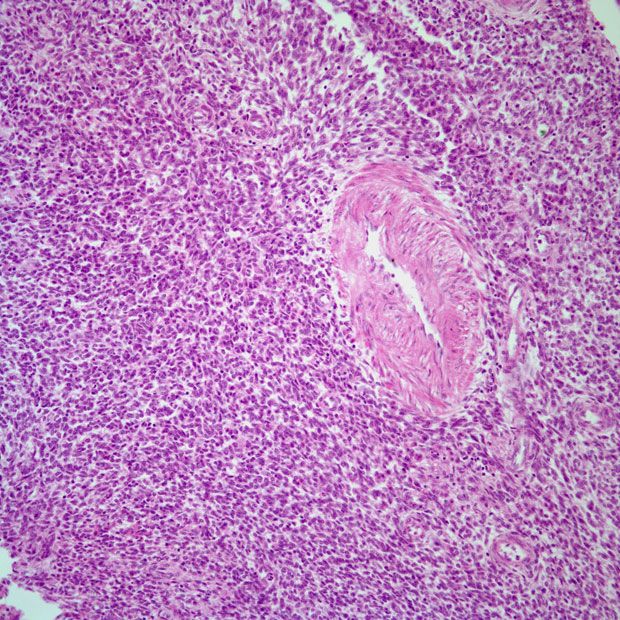Dostarlimab/Chemo Is Validated in Europe for dMMR/MSI-H Endometrial Cancer
The European Medicines Agency validates the potential indication of dostarlimab/chemotherapy in mismatch repair deficient/microsatellite instability–high endometrial cancer based on the phase 3 RUBY trial.
The European Medicines Agency has announced Type II Variation validation for dostarlimab-gxly (Jemperli) plus chemotherapy in patients with mismatch repair deficient (dMMR)/microsatellite instability–high (MSI-H) primary advanced or recurrent endometrial cancer, according to a press release from GSK.1
Data from the phase 3 RUBY trial indicated that dostarlimab plus chemotherapy improved PFS in those with dMMR/MSI-H endometrial cancer.

Interim data from the phase 3 RUBY trial (NCT03981796), which was previously presented at The Society of Gynecologic Oncology (SGO) 2023 Annual Meeting on Women’s Cancer, helped to validate the potential indication.2
The trial met its primary end of progression-free survival (PFS). Investigators reported an increase in PFS from 18.1% (95% CI, 13.0%-23.9%) in the placebo group to 36.1% (95% CI, 29.3%-42.9%) at 24 months in the dostarlimab group (Hazard ratio [HR], 0.64; 95% CI, 0.51-0.80, P <.001).
“New treatment options are urgently needed for patients with primary advanced or recurrent endometrial cancer,” said Hesham Abdullah, senior vice president and global head of Oncology Development at GSK, said in the press release. “With this initial filing, we are accelerating the submission of a potential new indication for dostarlimab in the patient population that demonstrated the strongest treatment effect in the phase 3 RUBY trial.”
A United States regulatory filing review is anticipated for the first half of 2023 based on results from the RUBY trial.
A total of 494 patients were initially randomly assigned, 52 of whom remained on treatment by data cutoff in the dostarlimab group compared with 36 in the placebo group. Patients were randomly assigned 1:1 and given either 500 mg of dostarlimab intravenously plus 5 mg/mL per minute of carboplatin or 175 mg/m2 once every 3 weeks for 6 cycles; dostarlimab was then given at 100 mg intravenously once every 6 weeks for up to 3 years.
Additional results showed that estimated PFS at 24 months in the dMMR/MSI-H population was 61.4% (95% CI, 46.3%-73.4%) in the dostarlimab group vs 15.7% (95% CI, 7.2%-27.0%) in the placebo group (HR, 0.28; 95% CI, 0.16-0.50; P <.001).
“These patients currently face significant unmet medical needs, and this combination could change the treatment paradigm for this condition. The phase 3 RUBY trial continues to follow patients for the dual-primary endpoint of overall survival in the intent-to-treat population,” concluded Abdullah.
Dostarlimab monotherapy received full FDA approval in February 2023 for patients with dMMR recurrent/advanced endometrial cancer based on data from the phase 1 GARNET trial (NCT02715284).3
References
- European Medicines Agency validates marketing authorisation application for Jemperli (dostarlimab) plus chemotherapy for the treatment of dMMR/MSI-H primary advanced or recurrent endometrial cancer. News release. GSK. April 25, 2023. Accessed April 25, 2023. https://bit.ly/3Hb4hvO
- Mirza M, Chase D, Slomovitz, et al. Dostarlimab in combination with chemotherapy for the treatment of primary advanced or recurrent endometrial cancer: a placebo-controlled randomized phase 3 trial (ENGOT-EN6-NSGO/GOG-3031/RUBY). Presented at: 2023 SGO Annual Meeting on Women’s Cancer; March 25-28, 2023; Tampa, Florida.
- FDA grants regular approval to dostarlimab-gxly for dMMR endometrial cancer. News release. FDA. February 9, 2023. Accessed April 25, 2023. http://bit.ly/3xbGuH2